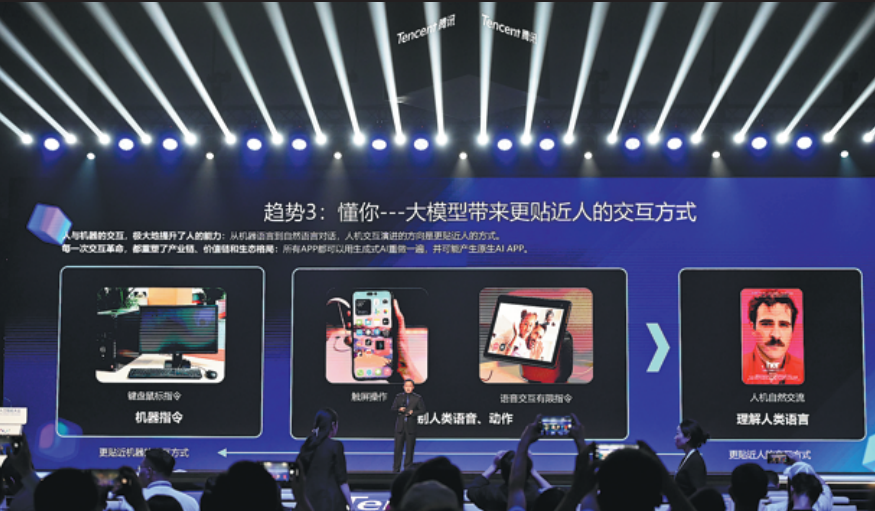Catching up, eyeing edge in chatbot niches
By CHENG YU | CHINA DAILY | Updated: 2023-08-28 07:03

Proof of the emerging trend is that Chinese tech heavyweights such as Baidu Inc, Alibaba Group Holding Ltd, Tencent Holdings Ltd and JD have all forayed into this field already. Data from the Internet Society of China showed the country has already developed more than 80 LLMs, all potential rivals to ChatGPT.
Besides supportive policies, what is driving the trend in China is "a well-rounded mobile internet market and ecosystem, where a large number of users are willing to try new technologies and can be easily attracted via social media like WeChat", said Wang.
Sensing the potential for high growth, Tencent Cloud, a subsidiary of WeChat owner Tencent, launched its industry-specific LLM in June. The next month, Chinese e-commerce giant JD unveiled its own industry-specific LLM called Chat-Rhino that is said to be capable of serving a wide range of fields, including retail, logistics, finance and health.
Compared with universal LLMs like ChatGPT, industry-specific LLMs refer to industrial versions of ChatGPT focused on niche sectors. They can better leverage industry data to offer more targeted solutions.
"General or universal LLMs are mostly trained using information in the public domain that may contain errors, rumors and biases, and lack the professional know-how and industry data," said Dowson Tong, Tencent's senior executive vice-president and CEO of the company's cloud and smart industries group.
Data from such models contain too much "noise" and are likely to cause huge legal liabilities or public relations crises. Thus, companies need more industry-specific models, Tong said.
He said Tencent's LLM has covered 10 major areas, including finance, culture, tourism, government affairs, media and education, and is able to offer 50 different kinds of solutions.
"In addition, the larger the model, the higher its cost of training. Companies also tend to choose a suitable model at a reasonable cost," Tong said.
In China, efforts to develop rivals to ChatGPT receive support from even local governments. According to Dai Qionghai, an academician at the Chinese Academy of Engineering, recent months have seen real money, in the form of investments by local governments, flow into AIGC, LLMs and related sectors.
This aspect is a potential game-changer that could deepen the tech competition between China and the US, Dai said.
According to a report by the Institute of Scientific and Technical Information of China, which is affiliated with the Ministry of Technology, more than 14 provincial regions have contributed to the R&D of LLMs. And 38 LLMs are from Beijing, followed by 20 from Guangdong province.
























